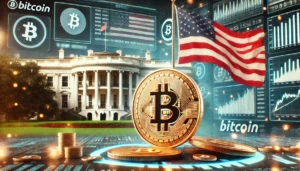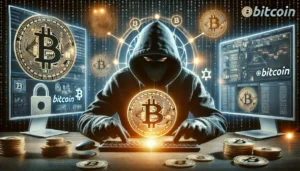Will Ukraine benefit, or rather Russia?
5 min readTable of Contents
With the Russian war of aggression against Ukraine, two narratives have emerged regarding cryptocurrencies like BTC. Once positively proven as an opportunity for the people in Ukraine to ensure payment transactions despite collapsing infrastructure, to receive quick international donations and to bring their own assets to safety in the event of a Russian occupation.
Contrary to this is the critical perspective that accuses BTC and Co. of weakening sanctions, since the Kremlin and its oligarchs can ultimately also take advantage of the advantages of cryptocurrencies. As is so often the case, there is no simple right or wrong answer. Rather, it is a matter of weighing things up, whereby one can ultimately very well come to a decision that one of the two narratives is more convincing.
SWIFT can be switched off, but not the blockchain
While you can colloquially pull the plug in international bank payment transactions (SWIFT), this is not possible with blockchain payment transactions. No nation in the world can stop blockchain transactions. Like clockwork, the BTC Blockchain, for example, generates a block every 10 minutes – no matter what may happen.
Sanctions could therefore have no technical effect or prevent transactions, but only declare them illegal. So if Russia tries to circumvent the SWIFT ban via cryptocurrencies, the states are only left with bans that prohibit such crypto payments.
Precise sanctions thanks to BTC?
Despite all the obvious criticism, this does not have to be a disadvantage. After all, hardly any entrepreneur would risk making themselves liable to prosecution by accepting cryptocurrencies from Russian citizens – assuming KYC is mandatory. Before receiving a crypto payment, companies would have to be obliged to verify and document their identity. For this reason, the EU Parliament and the ECB are also putting pressure on to implement the MiCA regulation efforts in a timely manner.
While in the case of a SWIFT exclusion all private individuals and companies that are customers of the bank concerned are penalized, differentiation would be possible in the case of blockchain-based payment transactions. For example, the SWIFT exclusion also penalizes German entrepreneurs or migrants from Russia living in Germany who are now unable to receive payments from Russia. Instead of isolating each individual bank from SWIFT, as is the case with SWIFT, one could precisely sanction blockchain transactions and only prohibit certain groups and transactions. Not being able to arrest a middleman or a central authority out of necessity can be used to impose sanctions at the individual level.
Are the cryptocurrencies at a central depository, ergo exchange like Coinbase or binance, then there is no difference to a bank anyway. After all, a crypto custodian as a central entity is just as capable of freezing cryptocurrencies as the Deutsche Bank account balances and securities – provided that appropriate sanctions are specified.
With blockchain transparency against Putin
The transparency of cryptocurrencies could even help to act even more efficiently against Putin and his supporters. While a lot of funds are held in offshore accounts that are not uncovered as part of the sanctions, that would be an entirely different story with cryptocurrencies. While the billions of Russian oligarchs are slumbering well hidden in Panama and Co., BTC assets would be replaced by corresponding Crypto Cybercrime Units, such as the USA has already created, can be easily determined. Analysis of transaction patterns would provide the West with an effective tool for tracking wealth.
You can then put Russian wallets and their cryptocurrencies on “black lists”. As with BTC confiscation from drug smugglers, cryptocurrency tagging can also take place here.
Bitfinex leads the way – obfuscation is useless
Just think of the well-known Bitfinex robbery of 3.6 billion US dollars in BTC, we had reported extensively. Despite their best efforts and intelligent crypto money laundering, the pair of thieves did not manage to launder the cryptocurrencies undetected by the law enforcement authorities. Every movement in crypto space leaves its mark.
Even if the Russian state builds up crypto holdings itself through BTC mining or ransomeware attacks with BTC ransom demands, these could be flagged up for the international community. Only when the sanctions are lifted could these marked cryptocurrencies and wallets be legally returned to the financial or crypto sector.
BTC for the Ukrainian people
Even if crypto sanctions are new territory and can occasionally offer loopholes, one should not forget the positive aspects for the Ukrainian population. Just think of the people in Ukraine who, in the event of a Russian invasion, must expect their entire fortune to fall victim to the Kremlin. Access to the banking infrastructure is also severely restricted in Ukraine. In the current emergency, the crypto-economy can function as a second safety net, deployed when the existing financial infrastructure no longer functions adequately.
Although decentralized infrastructures may be more difficult to manage than centralized entities, they show their robust nature particularly in times of crisis or even war. Within seconds, donations can arrive directly to the wallets of the Ukrainian government and people. In addition to the official crypto donation addresses, for example, there is already one Donate DAO formed on the Solana blockchain in cooperation with the Ukrainian government. The Russian government even accepts NFTs as donations.
Such alternative financial infrastructures can at least keep money moving for basic commodities like food and medicine. While Russia can paralyze all infrastructures via cyber attacks, it cannot switch off the blockchains used.
Conclusion on cryptocurrencies in the Ukraine war
There is no question that everything must be done to make the financial sanctions against Russia as severe as possible. The inherently positive nature of the censorship-free nature of BTC and other cryptocurrencies may at first glance seem contrary to this. Even as a supporter of cryptocurrencies, one must not escape this problem and must face criticism.
However, a second glance shows that transparency and traceability can compensate for the disadvantages of decentralization, and in some cases even overcompensate. Even if Russia were to try to circumvent the SWIFT ban with BTC, for example, it would run into the problem that it could only do limited import and export business with the West. In short: Russia ideally cannot do anything with its bitcoins. The oligarch billions that have been transferred to BTC in the past few days are also on the radar of the prosecuting authorities. After all, everyone can see when a new wallet suddenly appears with, for example, 50 million US dollars in BTC. The likelihood is very high that much of this new money comes from the Russians to be sanctioned.
So the legal sanctions are decisive and less so the technological cuts. It is to be hoped that politicians and the media do not try to create a public image of “evil BTC” serving the Russian regime. True to the motto: We’ve always said it, BTC only uses terrorists, drug smugglers and, more recently, Russia’s oligarchs. Fortunately, there are numerous examples of the positive impact of cryptocurrencies in Ukraine. In this sense, it is to be hoped for balanced reporting that does not place cryptocurrencies under general suspicion.
TOP cryptocurrencies for staking with passive reward up to 80%






